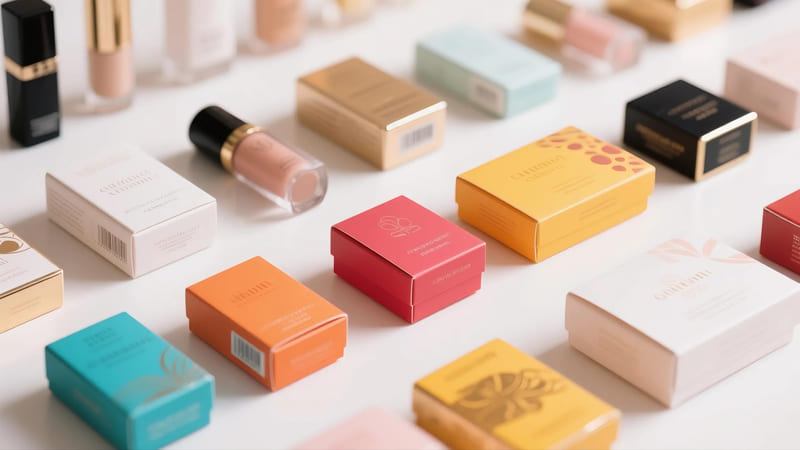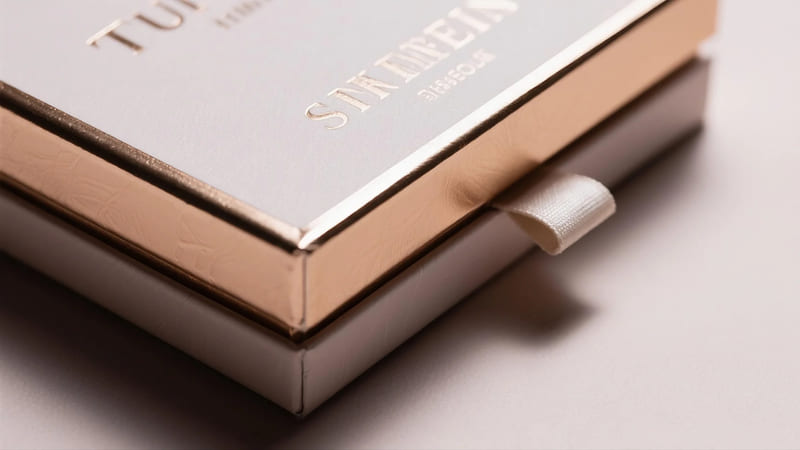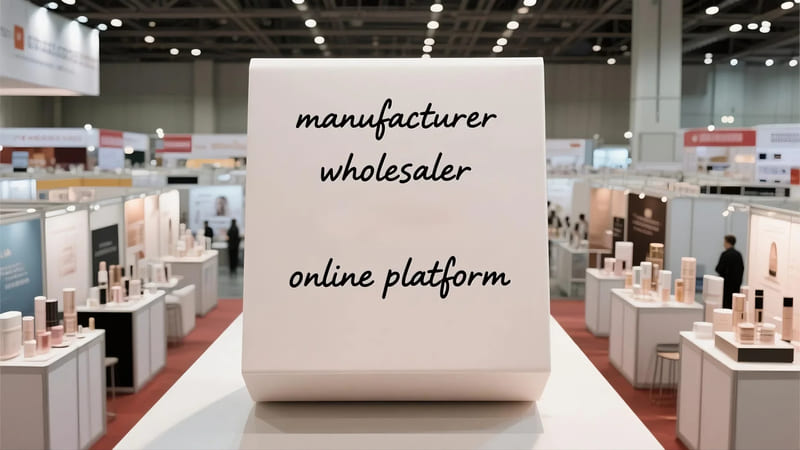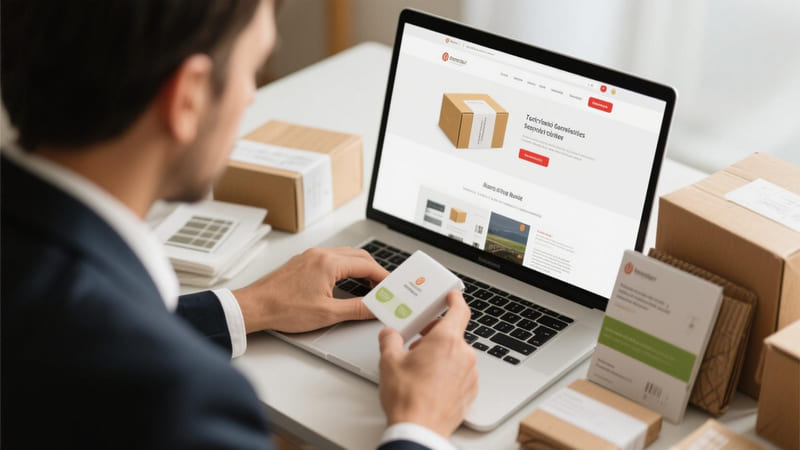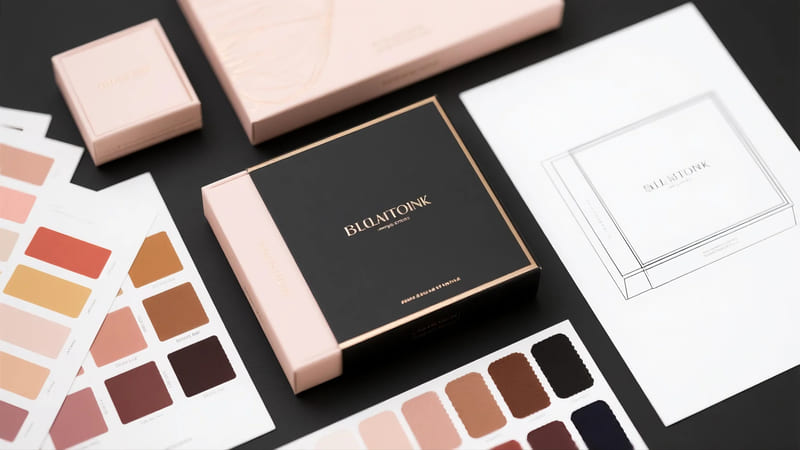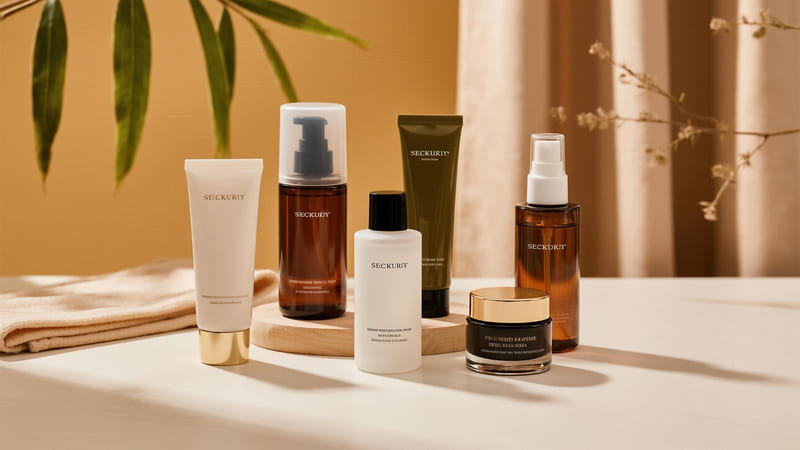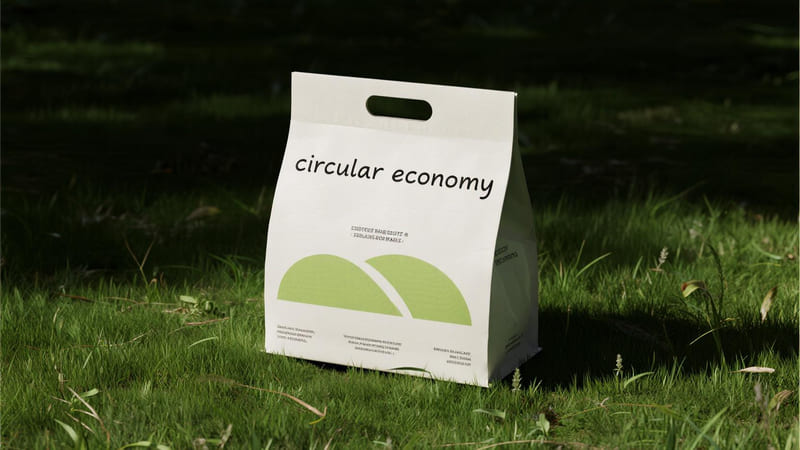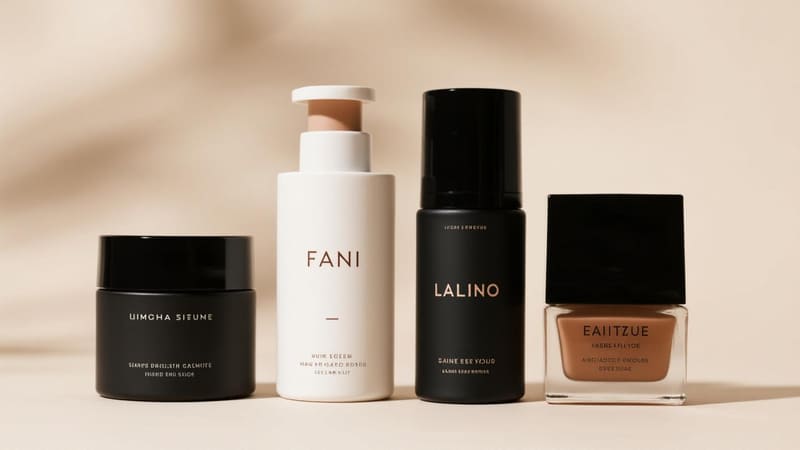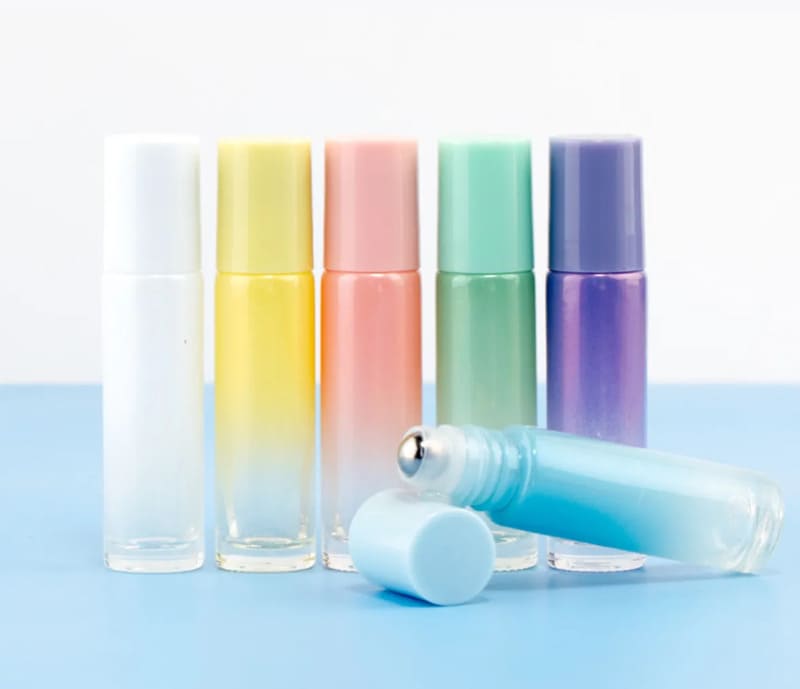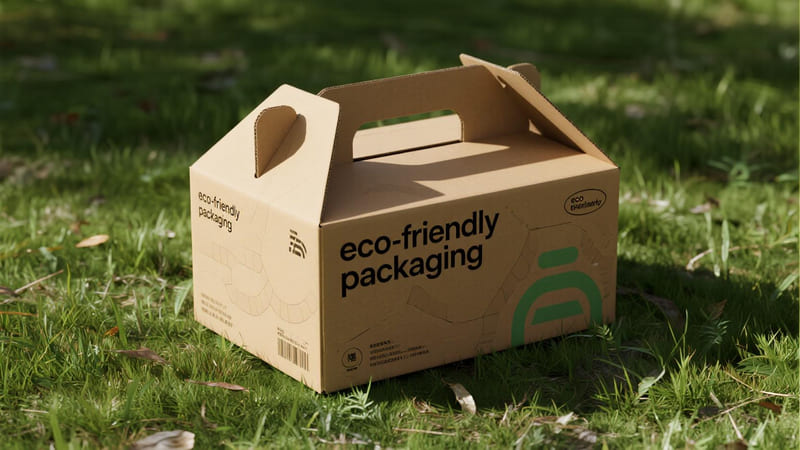Sourcing quality cosmetic boxes is a critical step for any beauty brand, big or small. The box is often the first thing a customer sees and touches, setting the tone for the product within. Finding reliable suppliers who can deliver on quality, aesthetics, and your specific needs is key.
You can find quality cosmetic boxes from specialized packaging manufacturers (like ShineTop for custom and bulk orders), reputable online packaging wholesalers/distributors, B2B marketplaces (with careful vetting), and sometimes through local printing and packaging companies that have cosmetic industry experience.
The quest for quality cosmetic boxes involves knowing where to look and what to look for. As a premier global packaging manufacturer with ShineTop for over 20 years, we’ve dedicated ourselves to being a trusted source for brands seeking exceptional packaging. Let’s explore the avenues available to you.
What Defines "Quality" in Cosmetic Boxes?
Before you start your search, it’s important to understand what "quality" truly means in the context of cosmetic boxes. It’s a combination of material excellence, structural integrity, and flawless presentation.
"Quality" in cosmetic boxes is defined by the use of superior paperboard materials, precise die-cutting and construction, crisp and accurate printing, impeccable application of finishes (like lamination, foil, embossing), durability to protect the product, and overall attention to detail that reflects a commitment to craftsmanship.
High-quality cosmetic boxes feel good, look good, and perform their protective function perfectly.
Key Indicators of Quality Cosmetic Boxes:
-
Material Grade:
- Paperboard: Use of premium paperboard like SBS (Solid Bleached Sulfate) for its smooth, white printing surface and strength. CUK/CNK (Coated Kraft) for durability with a natural interior. High-quality recycled boards for eco-conscious brands.
- Rigid Boxes: Thick, dense greyboard for structure, overwrapped with high-grade specialty papers.
- Consistency: The material should be consistent in thickness, color, and texture.
-
Structural Integrity & Construction:
- Precise Die-Cutting: Clean cuts and accurate scoring for crisp, neat folds.
- Secure Gluing: Strong adhesion on glue flaps with no excess glue visible.
- Proper Assembly: Boxes should assemble easily (if folding cartons) and hold their shape well. Rigid boxes should be perfectly square and robust.
- Fit: If designed for a specific primary container, the fit should be snug and protective.
-
Print Quality:
- Color Accuracy: Colors should match the approved proofs.
- Sharpness & Clarity: Text and graphics should be crisp and clear, with no blurring or misregistration.
- Even Ink Coverage: No streaks, smudges, or inconsistencies in ink density.
-
Finish Application:
- Lamination: Smooth, even application with no bubbles, peeling, or wrinkles.
- Foil Stamping: Clean, sharp foil application with no flaking or bridging.
- Embossing/Debossing: Clear, well-defined impressions with consistent depth.
- Spot UV: Accurate registration and a distinct, high-gloss finish.
-
Durability:
- The box should be able to withstand normal handling, shipping (within a master carton), and shelf display without easily scuffing, tearing, or collapsing.
-
Attention to Detail:
- No blemishes, dirt marks, or imperfections.
- Overall look and feel that conveys care and professionalism.
At ShineTop, our ISO 9001 certification underscores our commitment to these quality standards throughout our manufacturing process, from material sourcing to final inspection.
What Types of Suppliers Offer Cosmetic Boxes?
Cosmetic boxes can be sourced from different types of suppliers, each catering to different needs in terms of volume, customization, and service.
Suppliers offering cosmetic boxes include direct manufacturers (like ShineTop, ideal for custom designs and large volumes), specialized packaging wholesalers/distributors (good for stock options and smaller to medium volumes), online B2B marketplaces (connecting buyers with many global manufacturers), and local printing/packaging companies (can be good for smaller runs or quick turnarounds if they have cosmetic expertise).
Understanding the supplier landscape helps you target your search effectively.
Main Categories of Cosmetic Box Suppliers:
-
Direct Packaging Manufacturers:
- Who They Are: Companies that own and operate the factories where the boxes are actually produced (e.g., ShineTop).
- Best For: Brands needing custom-designed boxes, specific materials/finishes, large order volumes, and potentially better per-unit pricing on high quantities.
- Pros: Full control over customization, direct communication with the production source, potential for cost savings on large runs, ability to handle complex projects.
- Cons: Usually have higher MOQs (Minimum Order Quantities), longer lead times for custom projects.
-
Packaging Wholesalers/Distributors:
- Who They Are: Companies that buy packaging (often stock items, sometimes semi-custom) in bulk from various manufacturers and resell them in smaller quantities. Many operate online.
- Best For: Startups and small to medium-sized businesses needing standard box sizes/styles, lower MOQs, and faster lead times for readily available items.
- Pros: Lower MOQs, wide selection of stock options, quicker turnaround for in-stock items.
- Cons: Less customization possible, per-unit cost might be higher than direct manufacturing.
-
Online B2B Marketplaces:
- Platforms: Alibaba, Made-in-China, DHGate, ThomasNet, Europages.
- Who They Are: Platforms connecting buyers directly with a vast number of global manufacturers and trading companies.
- Best For: Sourcing from a wide range of global suppliers, comparing prices, finding niche manufacturers.
- Pros: Huge selection, competitive pricing potential.
- Cons: Requires very careful vetting of suppliers to ensure quality and reliability; communication can sometimes be challenging. ShineTop is an example of a vetted, quality manufacturer found on these platforms.
-
Local Printing & Packaging Companies:
- Who They Are: Local print shops or smaller packaging converters.
- Best For: Very small runs, quick turnaround needs, or if a close working relationship with a local supplier is preferred.
- Pros: Face-to-face interaction, potentially faster for small local jobs.
- Cons: May have limited experience specifically with cosmetic packaging quality standards or access to specialized materials/finishes compared to dedicated cosmetic packaging manufacturers. Their costs for specialized work might also be higher.
-
Packaging Brokers/Agents:
- Who They Are: Intermediaries who connect brands with suitable manufacturers.
- Pros: Can leverage their network and expertise to find good suppliers, may handle logistics.
- Cons: Adds a layer to the cost.
For brands like Anna’s in Thailand or Mohammed’s in Iraq, working directly with a manufacturer like ShineTop allows them the full spectrum of customization and quality control for their specific cosmetic box needs, especially as their volumes grow.
How to Evaluate the Quality of Online Suppliers?
When sourcing cosmetic boxes online, especially from B2B marketplaces or unfamiliar wholesalers, thorough evaluation is crucial to ensure you receive quality products.
To evaluate the quality of online cosmetic box suppliers, scrutinize their website professionalism, check company history and certifications (e.g., ISO), read client reviews and testimonials, analyze product descriptions and images for detail, request physical samples before ordering, and assess their communication responsiveness and clarity.
Due diligence is key when you can’t meet the supplier or see the factory in person initially.
Steps for Online Supplier Evaluation:
-
Website & Online Presence:
- Professionalism: Is the website well-designed, informative, and free of errors?
- Detailed Product Information: Do they provide clear specifications for materials, sizes, printing options, and finishes?
- Company Information: Is there clear information about their history, manufacturing capabilities (if a manufacturer), and location?
- Contact Information: Is it easy to find and are they responsive?
-
Credentials & Certifications:
- Look for quality management certifications like ISO 9001.
- For paper products, FSC certification indicates responsibly sourced materials.
- Check for any industry awards or recognitions.
- If they claim to be a manufacturer, try to verify this (e.g., factory photos/videos, audit reports if available for larger B2B platform suppliers).
-
Reviews, Testimonials & Case Studies:
- Look for independent reviews on platforms or forums if possible.
- Check testimonials on their website (though be aware these are curated).
- Case studies of previous projects can demonstrate their capabilities.
-
Communication Quality:
- Send an initial inquiry. How quickly and professionally do they respond?
- Are their answers clear, detailed, and helpful?
- Do they ask good questions to understand your needs?
-
Sample Request (CRITICAL STEP):
- Always request physical samples before placing any significant order. This is the best way to assess their actual quality.
- Ask for samples of boxes similar to what you need, or generic samples showing their print and finish capabilities.
- Evaluate the samples against the quality criteria mentioned earlier (material, construction, print, finish).
-
Minimum Order Quantities (MOQs) & Pricing:
- Ensure their MOQs are feasible for you.
- Get detailed quotes. Be wary of prices that seem too good to be true.
-
Understanding of Cosmetic Industry Needs:
- Do they seem familiar with the specific requirements and quality expectations for cosmetic packaging (e.g., importance of color matching, precision in finishes, material compatibility)?
When clients approach ShineTop online, we ensure our website (www.cospacks.com) provides comprehensive information, and we are always ready to provide detailed specifications, samples, and discuss their projects thoroughly to build that trust and demonstrate our quality.
What Should I Look for When Ordering Custom Cosmetic Boxes?
Ordering custom cosmetic boxes allows you to create packaging perfectly tailored to your brand and product. However, it requires clear specifications and careful attention to detail during the ordering process.
When ordering custom cosmetic boxes, look for a supplier with strong design support and prototyping capabilities. Specify your exact requirements for material (type, weight), dimensions, printing (colors, methods), finishes (lamination, foil, emboss, etc.), structural design, and quantity. Always approve a final pre-production sample before mass production.
Clear communication of your vision and meticulous proofing are essential for custom orders.
Key Considerations for Custom Orders:
-
Supplier’s Customization Capabilities:
- Ensure they have experience with custom designs and the specific features you want.
- Do they offer design assistance or DFM (Design for Manufacturability) feedback? This is a service ShineTop provides.
-
Detailed Specifications:
- Material: Exact paperboard type, GSM (grams per square meter) or caliper (thickness).
- Dimensions: Provide precise internal dimensions (Length x Width x Height) to fit your primary product, or send them your primary product for accurate sizing.
- Structure: Specify the box style (e.g., tuck-end, auto-bottom, rigid lid-and-base, drawer box). Provide a die-line if you have one, or ask them to create one.
- Printing:
- Number of colors (CMYK, Pantone/PMS spot colors).
- Printing method (offset is common for high quality).
- Finishes: Clearly list all desired finishes (e.g., matte lamination, gold foil stamping on logo, blind embossing of pattern).
- Inserts: If needed, specify material and design for custom inserts.
-
Artwork Submission:
- Provide high-resolution, print-ready artwork in the format requested by the supplier (usually Adobe Illustrator .ai or .eps, or high-res PDF with bleed and trim marks).
-
Prototyping & Sampling:
- Digital Proofs: Always review carefully.
- Physical Prototype/Mock-up: Highly recommended for custom structures to check fit and assembly.
- Pre-Production Sample (PPS): A final sample made with your exact materials, printing, and finishes before the full production run. This is the most crucial approval step. There might be a cost for a PPS, but it’s worth it to avoid costly errors.
-
Lead Times:
- Custom orders take longer than stock items. Get a clear timeline for design, sampling, and production.
-
Quality Control Agreement:
- Discuss how quality will be ensured and what the process is if any issues arise.
-
Cost Breakdown:
- Ensure you understand all costs: per-unit price, tooling/die-line fees, plate charges, sample costs, shipping.
Ordering custom cosmetic boxes is a collaborative process. A good quality supplier will guide you through these steps, ask clarifying questions, and ensure you are happy with all proofs and samples before proceeding.
Conclusion
Finding quality cosmetic boxes involves identifying reputable suppliers—be they direct manufacturers like ShineTop, wholesalers, or online platforms—and then diligently vetting them. By focusing on material quality, construction precision, print and finish excellence, and clear communication, especially when ordering custom designs, you can secure packaging that protects your product, enhances your brand, and delights your customers. Always prioritize obtaining samples to verify quality firsthand.

